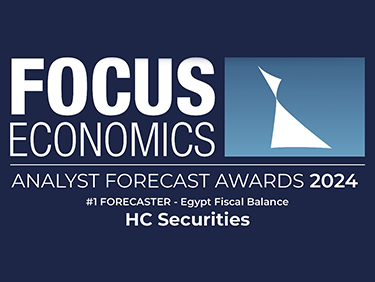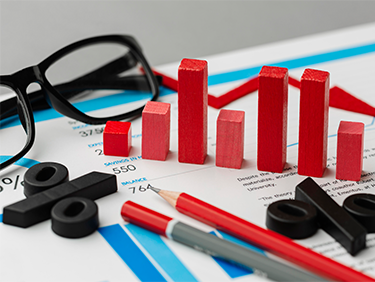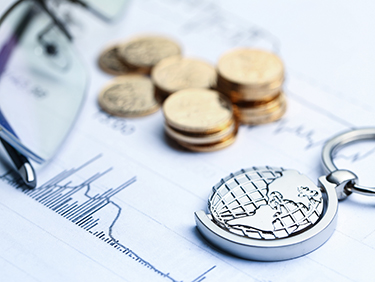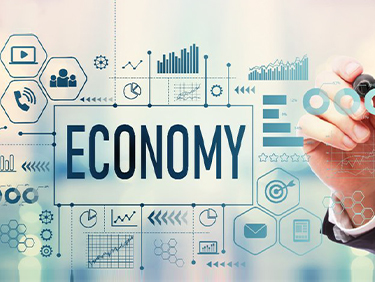Commercial International Bank (CIB)
- Egypt’s favorable economic structural reforms entail monetary and fiscal tightening, enabling private sector growth and currency liberalization, making the Egyptian banking sector a key beneficiary of these reforms
- We expect outstanding profitability for COMI in 2024 as a result of the expected NIM expansion, while CAPEX loan growth would be delayed to 2025, in our view
-
HC Brokerage resumes coverage on Commercial International Bank expecting outstanding bank’s profitability in 2024 as a result of the expected NIM expansion.
Economist and financial analyst at HC, Heba Monir commented: “The Ras El Hekma investment deal improved Egypt’s external position and outlook: The Egyptian economy restored confidence after concluding the Ras El Hekma USD35bn investment deal with the UAE in February 2024. The disbursement of the first and second cash tranches worth USD24bn, helped narrow the banking sector’s net foreign liabilities (NFLs) significantly by c85% y-o-y to USD3.64bn in April, from USD29bn in January 2024. On 6 March, the Central Bank of Egypt (CBE) hiked policy rates by 600 bps, raising them by 800 bps y-t-d and 1,900 bps since it started tightening rates in March 2022, and allowed market forces to determine the exchange rate, leading to an EGP devaluation of c35% y-t-d to EGP47.7/USD currently. Following this, and given the impact of the Gaza war on tourism and Suez Canal receipts, the International Monetary Fund (IMF) and the Egyptian authorities reached a staff-level agreement on a set of comprehensive policies and reforms needed for the Extended Fund Facility (EFF) arrangement, increasing it significantly to USD8.0bn from the previously approved USD3.0bn in December 2022, leading to the disbursement of USD820m in April and another USD820m to be disbursed in June. The European Union (EU) also pledged a EUR7.4bn (USD8.06bn) aid package for Egypt to be disbursed through 2027. All this reflected positively on Egypt’s economic and banking sector credit ratings; S&P Global Ratings and Fitch Ratings upgraded Egypt’s economic outlook to Positive from Stable and Moody’s to Positive from Negative. Despite these positive developments, we do not expect CAPEX lending growth before 2025, given the prohibitive high borrowing cost and our expectation of delayed monetary easing to late 2024 or early 2025. Yet, we expect banks to benefit in 2024 from the higher treasury yields and high deposit auction rates, leading to unusually high net interest margins (NIMs).”
“We expect solid banking sector profitability in 2024 due to high treasury yields and real growth in loans: We forecast the banking sector’s loans to grow by c31% y-o-y to EGP7.25trn in 2024, mainly driven by EGP loans to finance working capital needs and inflated by the EGP devaluation. Given the high-interest rate environment, we do not expect CAPEX lending to materialize before 1H25. In January 2024, the state-owned National Bank of Egypt (NBE) and Banque Misr introduced a one-year certificate of deposits (CDs) at a 27.0% interest rate paid annually. Following the 6 March EGP devaluation, they introduced in March a three-year declining interest rate CDs paying interest annually of 30.0% in the first year, 25.0% in the second year, and 20.0% in the third year. In January 2024, some private banks like Commercial International Bank (COMI) followed suit and issued three-year CDs at a monthly 20–22% interest rate while setting a minimum value per CD of EGP0.1–5.0m. Therefore, we estimate market deposits to increase by c27% y-o-y to EGP13.7trn in 2024. Regarding profitability, we expect local currency NIMs to continue expanding, given the high treasury yields and high interest rates. We see room for higher treasury yields by 100–200 bps if inflation accelerates, which would represent an upside risk to our numbers. Regarding asset quality, we forecast that large to medium-cap banks will report good asset quality, as most of them increased their provisions charges during 4Q23. Meanwhile, we could see higher NPLs for small-cap banks. As for the capital adequacy ratio (CAR), most banks’ CARs are above the CBE’s minimum requirement, and if they happen to be impacted by the EGP devaluation, we expect them to recover, helped by their solid profitability.” Heba Monir added.
HC’s economist concluded: “We forecast COMI’s net income to grow at a 5-year CAGR of c24% while maintaining its leading market share: We forecast COMI’s net income to grow at a 5-year CAGR of c24% from 2023–28e, with a c70% y-o-y growth in 2024e to EGP50.4bn on higher interest rates, the EGP devaluation, and a favorable deposit mix, as its current account savings accounts (CASA) represent c55% of its total deposits. We estimate its NIM to increase to 9.57% in 2024e from 7.75% in 2023e, with an ROE of 49.8%, up from 37.5% in the previous year. We forecast COMI to maintain its attractive deposit market share, which we estimate at 6.4% in 2024e, growing its deposits by c23% y-o-y to EGP835bn in 2024e, on our numbers, and we estimate its loan market share at 4.9% in 2024e, growing its loan portfolio by c29% y-o-y to EGP303bn in 2024e to finance corporates’ higher working capital needs, inflated by the c35% EGP devaluation. We expect COMI to report an adequate asset quality, with NPLs of 4.65% of gross loans, higher than the 3.59% it reported in 2023, due to more volatile business conditions and the precautionary measures required by the expected credit loss (ECL) model of IFRS 9. We forecast the bank to record a lower coverage ratio of 276% in 2024e from 305% in 2023 due to its good provisioning and the sound credit profile of its corporate clients. We estimate its net loan-to-deposit (L/D) ratio to increase to 36.3% in 2024e from 34.8% a year earlier. We estimate the bank’s financial investments holdings to surge by c39% y-o-y to EGP378bn, representing c45% of customer deposits in 2024e from c40% in 2023 due to the attractive treasury yields. We expect COMI’s CAR to increase to 30.3% in 2024e from 26.2% in 2023.”
About HC Brokerage
HC Brokerage is an affiliate of HC Securities & Investment– a full-fledged investment bank providing investment banking, asset management, securities brokerage, research, and custody services. HC Brokerage is an Egyptian registered company and member of Egypt’s Financial Regulatory Authority (FRA), and its registered address is 34 Gezirat Al-Arab St., Mohandessin, Giza, Egypt, Dokki 12311










